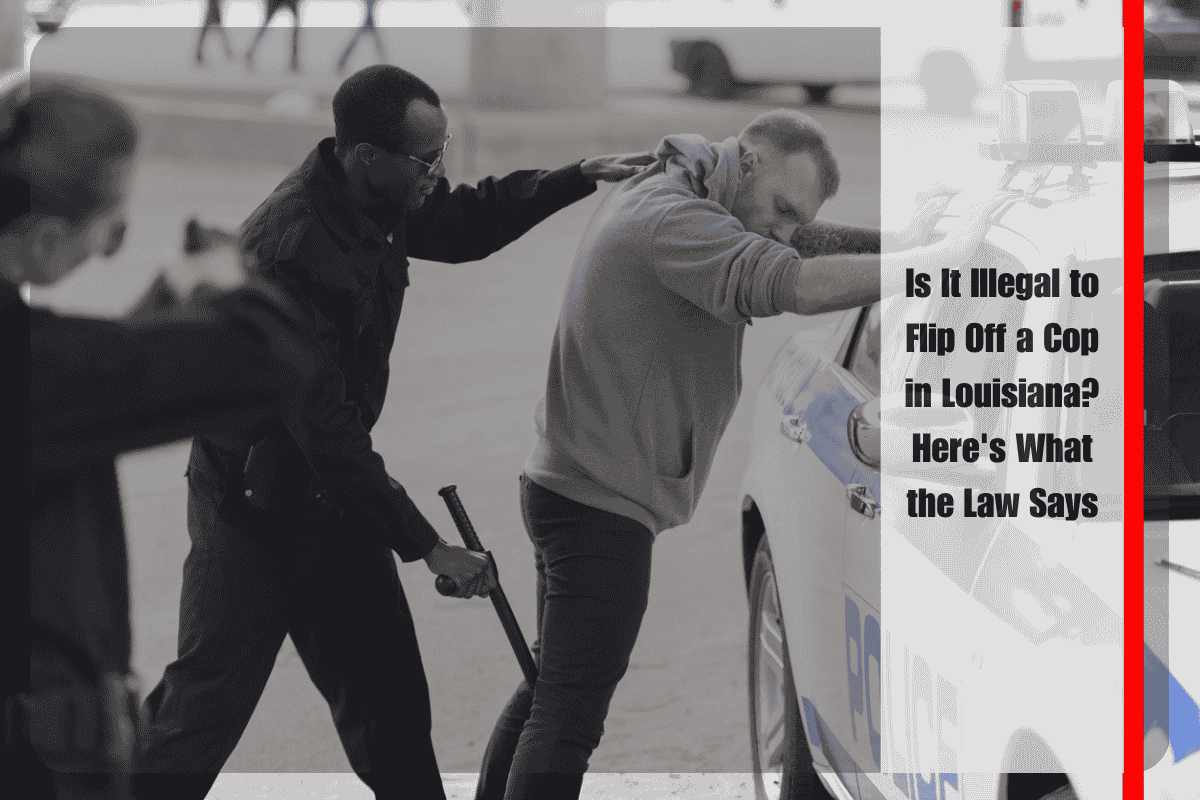In Louisiana, giving a police officer the middle finger, commonly called “flipping off” a cop, is not explicitly illegal by itself. However, this gesture falls within a complicated legal context involving laws on resisting or obstructing a police officer and disorderly conduct.
Under Louisiana law, resisting an officer (La. R.S. 14:108) involves intentionally interfering with, opposing, or obstructing a police officer acting in their official capacity. This includes refusal to cooperate but requires intentional resistance or obstruction beyond mere expressions of disrespect or offensive gestures. Simple non-verbal expressions like flipping off an officer are usually protected as free speech under the First Amendment, provided they do not escalate into threats or physical interference.
Louisiana has also enacted laws to prevent obstruction or interference with law enforcement during arrests or lawful detentions, with penalties for intentionally resisting or using force against officers. Still, courts have generally held that offensive gestures alone do not constitute the kind of active interference required for a resisting arrest charge.
That said, such a gesture could contribute to heightened tensions and prompt officers to scrutinize behavior more closely. If accompanied by loud, disruptive, or threatening conduct, or refusal to comply with lawful commands, it could lead to charges such as disorderly conduct or resisting an officer.
Recent legislative changes in Louisiana have also made it illegal to refuse to provide identification during a lawful stop or to violate police buffer laws requiring people to maintain a certain distance from officers when ordered. These laws emphasize compliance with officer instructions, but again do not specifically criminalize offensive gestures.
While flipping off a cop in Louisiana is not per se illegal, it carries risks. The gesture could provoke escalation, possible arrest, or ancillary charges if deemed part of obstructive or disorderly conduct. Exercising free speech rights is protected, but it is generally advisable to remain calm, respectful, and compliant during police encounters to avoid legal complications or conflict escalation.
This balance between constitutional free speech and police authority defines the legal climate around such behaviors in Louisiana, ensuring protections exist but also emphasizing respect for lawful police duties.
Sources
[1] https://www.ericgjohnsonlaw.com/everything-you-need-know-about-louisianas-new-resisting-officer-law/
[2] https://www.youtube.com/watch?v=mPMUjWrnixo
[3] https://www.propublica.org/article/louisiana-police-buffer-law
[4] https://veritenews.org/2024/07/31/louisiana-police-buffer-law/
[5] https://legis.la.gov/Legis/Law.aspx?d=508535












